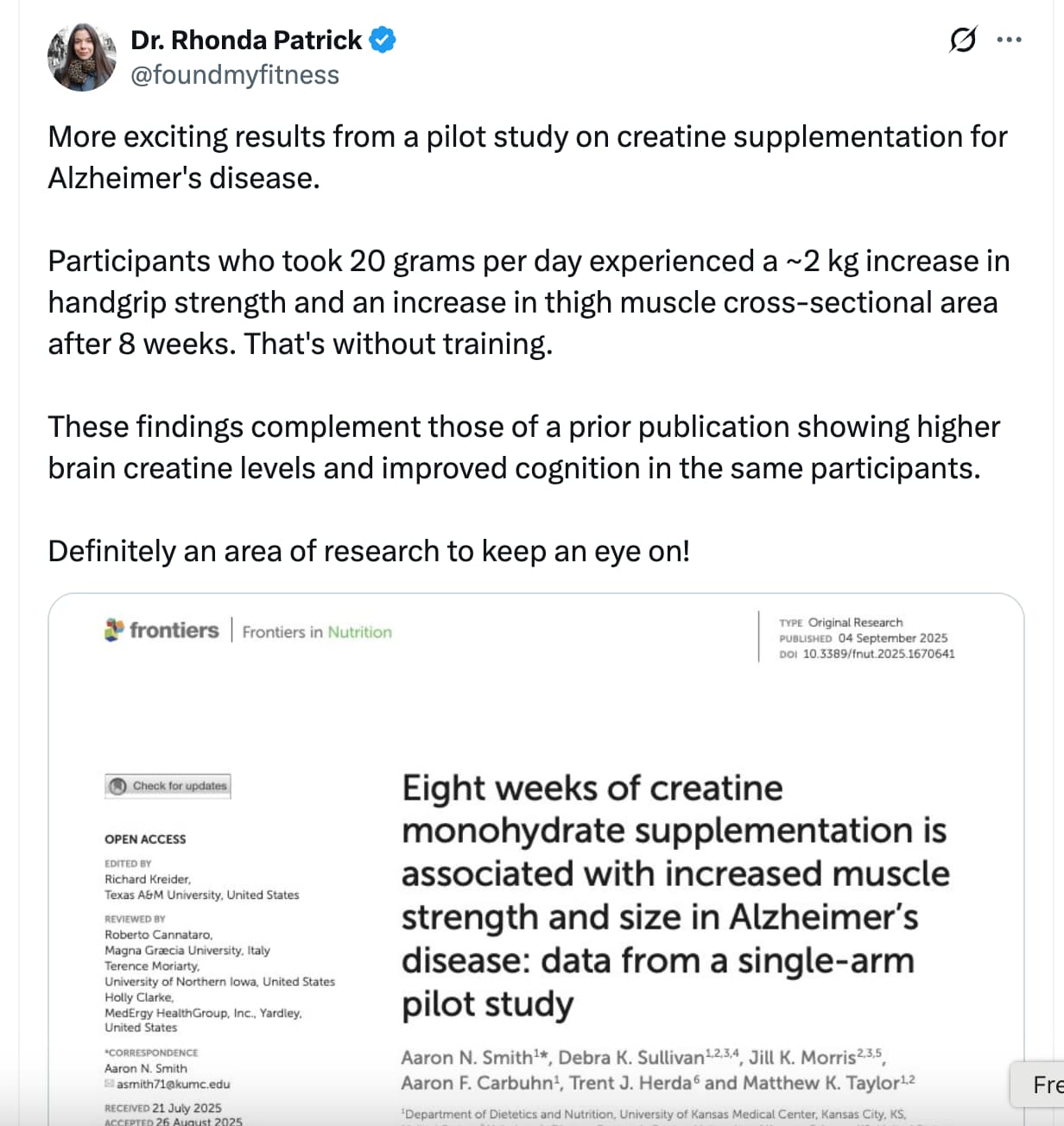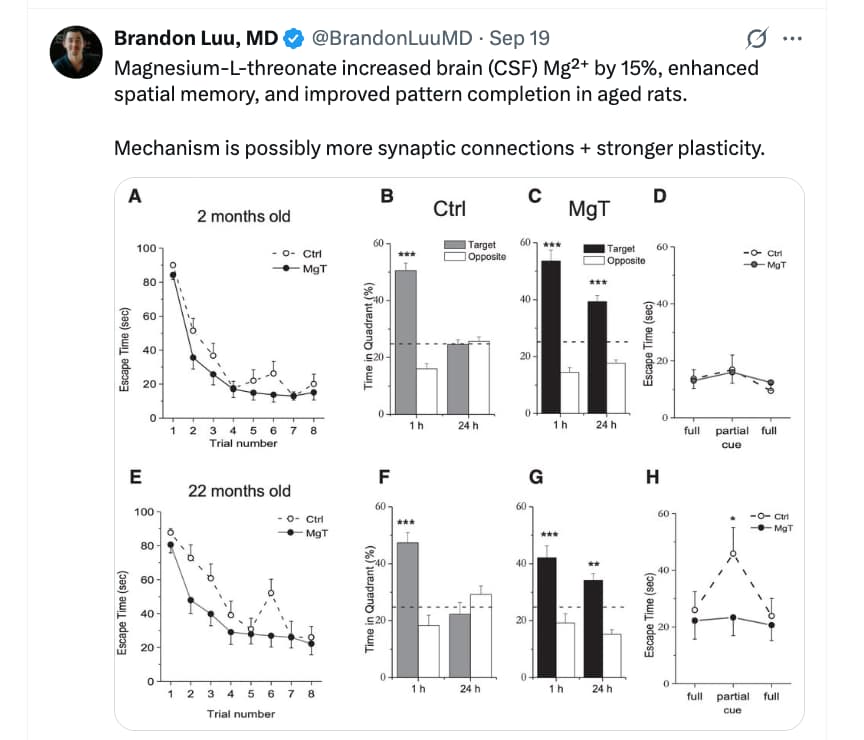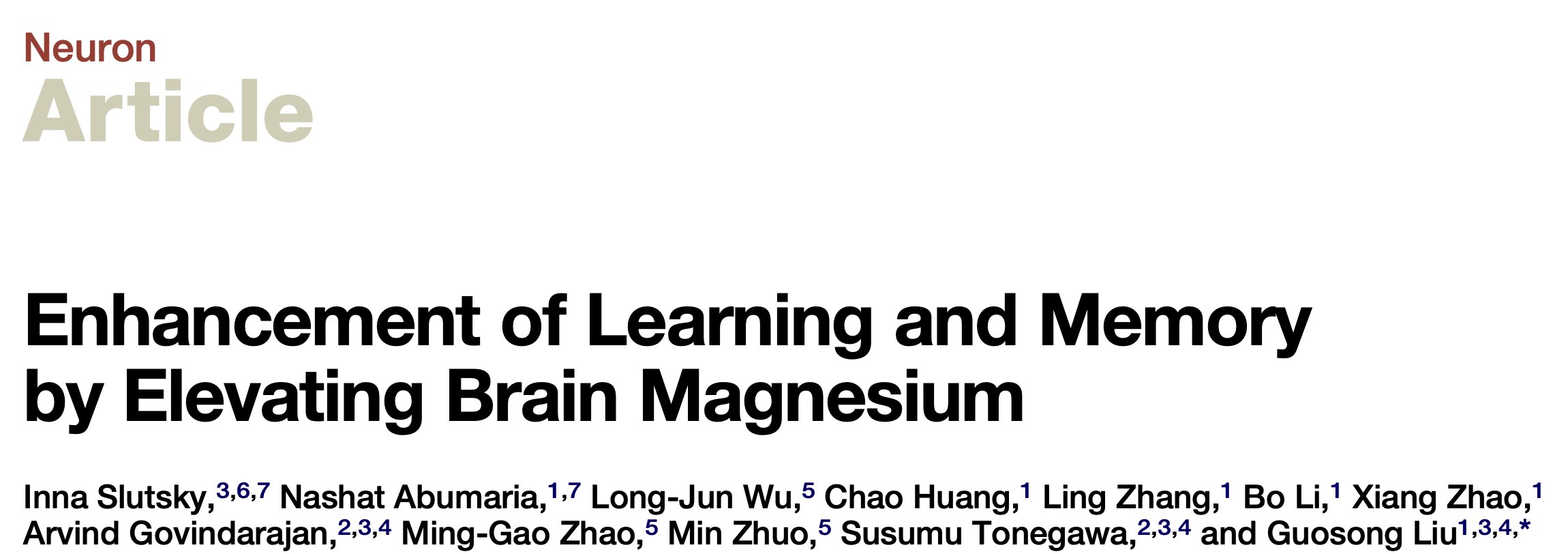Important to note that tagatose did not have the negative effect noted in the study above. It also has 90% of the sweetness of sucrose (“sugar”) and apparently tastes qualitatively the most like sugar of any substitute. I’ll be trying it for the first time today. Only downsides appear to be price and it still has 1.5 kcal/gram.
I don’t think you can draw conclusions from that sweetener study.
- people are notoriously horrible at reporting what they eat/drink
- sweetener had no effect on people >60 which doesn’t really make sense. Less cognitive reserve generally makes a person more vulnerable to a neurotoxin.
- sweetener intake is likely a surrogate for overall diet quality. Health conscious people generally try to avoid artificial sweeteners, probably exercise more, don’t smoke, may have different socioeconomic status, etc. There are numerous variables that could account for the difference and even though they try they can’t control for them all.
Not saying to go crazy with sucralose, but I highly doubt a diet soda every once in a while is going to be the cause of someone’s dementia if they are doing everything else right.
If you don’t mind me asking what is your Apoe genotype? I got the test done with Labcorp, I’m E3/E3 which means I’m at normal risk for Alzheimer’s. But I did a contact sport for 12 years so I have some brain damage and issues I’m dealing with today.
The conclusion of the authors is not that strong:
This eight-week pilot trial suggests that 20 g/day of CrM may provide modest skeletal muscle benefits in patients with AD.
This is worth a listen re cognitive decline.
Core Supplements: omega 3, vit d3, TMG, creatine, Magnesium Threonate, B vitamins.
More speculative: Lions Mane Mushrooms, NAD precursors, Alpha GPC, phosphatidyl choline, Urolithin A, CA-AKG.
A Scientific-Backed Discussion on Fighting Cognitive Decline (Optispan Podcast)
Who’s on: Matt Kaeberlein with Dr. Kevin White (MD) and Erik Nelson (RN). Published: Sept 2, 2025. Runtime: ~1:24:46. Listen Notes
Executive summary
- The guests argue cognitive decline isn’t inevitable and outline a multi-modal, staged program aimed at halting—or in some cases reversing—decline. Optispan
- Early detection is central: genetics (e.g., APOE), blood biomarkers, cognitive testing, and imaging are combined to profile risk before symptoms emerge. A case of a 63-year-old APOE4 carrier illustrates this preventative approach. Optispan
- The plan emphasizes a tiered framework: lifestyle foundations → core supplements → targeted medications → carefully selected experimental/adjunct options, with personalization and longitudinal tracking. Optispan
- Lifestyle “brain armor” (sleep, diet, exercise, metabolic health) is positioned as the base layer for everyone. Apple Podcasts
- Core supplements discussed include omega-3s, B-vitamins, magnesium, and creatine; these are framed as supportive, not cures. Optispan
- Medications considered for specific phenotypes: statins, SGLT2 inhibitors, metformin, with interest in rapamycin and PDE5 inhibitors based on emerging evidence. Optispan
- Experimental/adjunct ideas (for select cases): therapeutic plasma exchange; caution around peptides and stem cells; strong emphasis on ongoing measurement to confirm benefit. Optispan
- Optispan plans an initial pilot cohort (~100 participants) using this program in the coming months. Optispan
Chapters at a glance (from publisher notes)
- 0:00 – Why they’re tackling dementia now
- 16:14 – The diagnostic blueprint (blood work, brain scans, cognitive testing)
- 40:44 – Lifestyle as the foundation (“brain armor”)
- 49:28 – Level 1: Core supplements
- 56:59 – Level 2: Targeted medications (incl. rapamycin)
- 1:12:47 – Level 3: Experimental frontier (e.g., TPE, sauna, peptides)
-
1:23:24 – Program overview & who it’s for
These chapter titles and timestamps come directly from the episode listing. Apple Podcasts
Source & metadata
- Spotify episode page (title confirmation). Spotify
- Optispan’s episode write-up with key themes and examples. Optispan
- ListenNotes listing (date & duration). Listen Notes
AI Summary of the above video:
Note: (I’m less and less happy with these AI summaries, Youtube seems to be blocking all AIs from the transcripts of the videos now, as they don’t want people just reading summaries… Someone needs to come up with an AI agent that will bypass these guardrails that these companies are setting up. Once I’ve started using AI summaries instead of actually watching these long podcast videos, I don’t want to go back.
Introduction to Brain Health Program
- The podcast episode features Eric Nelson from Human Sync and Dr. Kevin White from Prime Health Associates discussing a collaborative program focused on brain health and cognitive decline.
- The program aims to address issues related to dementia and traumatic brain injury, emphasizing lifestyle factors and the potential of advanced diagnostics and therapies.
- Listeners are encouraged to explore the conversation for insights on whether dementia can be prevented or reversed.
Personal Experiences with Brain Health
- Eric shares his background as an ICU nurse at Mayo Clinic and his fascination with the brain, stemming from his father’s career as a neurosurgeon.
- He recounts his experiences with concussions during high school football, highlighting the lasting impact on his understanding of brain health.
- The conversation shifts to the importance of recognizing the overlap between traumatic brain injuries and the progression of dementia, suggesting that interventions may benefit both groups.
The Importance of Lifestyle Factors
- The discussion emphasizes the significance of lifestyle choices in maintaining brain health and mitigating risks associated with cognitive decline.
- Factors such as diet, exercise, sleep, and stress management are highlighted as critical components of a comprehensive brain health strategy.
- There is a belief that proactive measures can halt or even reverse cognitive decline if taken early enough.
Developing the Brain Health Protocol
- The team is working on finalizing a protocol that incorporates their collective knowledge on brain health, genetics, and aging processes.
- The protocol aims to be personalized, addressing individual needs based on genetic predispositions and lifestyle factors.
- They anticipate rolling out the program to clients in the near future, with a focus on documenting changes in cognitive function and biomarkers.
Case Studies and Personal Stories
- Eric shares a case study of a 63-year-old woman with a genetic predisposition to Alzheimer’s, highlighting the importance of early detection and intervention.
- The case study emphasizes the use of advanced diagnostics to assess plaque development and cellular health in the brain.
- The goal for this individual is to maintain her current cognitive function and prevent further decline through targeted interventions.
Diagnostics and Assessments
- The program incorporates comprehensive diagnostics, including genetic testing, blood panels, and imaging to evaluate brain health.
- Key biomarkers such as APOE status, inflammation markers, and neurofilament light are monitored to assess risk and progression of cognitive decline.
- The importance of tracking changes over time through cognitive assessments and imaging is emphasized to evaluate the effectiveness of the interventions.
Potential Therapeutic Interventions
- The conversation explores various therapeutic options, including lifestyle modifications, supplements, and medications that may aid in cognitive health.
- There is a focus on the potential benefits of pharmacological interventions, such as GLP-1 agonists and rapamycin, particularly for individuals at high risk for dementia.
- The discussion also touches on the role of therapeutic plasma exchange and its potential to reduce circulating toxins and inflammation in the brain.
Conclusion and Future Directions
- The episode concludes with excitement about the upcoming launch of the brain health program, which aims to combine various interventions tailored to individual needs.
- The team is committed to ongoing research and adaptation of the protocol based on emerging evidence and patient feedback.
- Listeners are encouraged to stay informed about developments in brain health and the potential for significant improvements in cognitive function through proactive measures.
Yes the gut - brain axis is quite important, and just like the GLP-1 agents seeming to decrease rate of AD, despite not getting into the brain, but having powerful effects on the brain, the diet is another example. Both the Lancet and Finger studies addressing lifestyle and AD indicate powerful effects at mitigating risk with dietary patterns with plant diversity, fiber, polyphenols/flavinoids.
Inulin is not my favorite way of doing it — e.g. I’d not recommend everyone go out and grab some … it is a high FODMAP supplement and some people get some solid GI upset. But yes, goaling for 30 grams of fiber (at least) daily, preferably through high quality foods would be my strategy.
I make my own reuteri yogurt using huge amounts of inulin, and I’m also sensitive to many FODMAP foods - reuteri yogurt definitely helps my gut in all sorts of ways. I guess by the time the fermentation is done, over 36 hours, not that much remains. I probably use about 1 cup of inulin to every 1.5 litres of semi-skimmed milk. @DrFraser What is your concern with inulin?
No concern with inulin, apart from it will result in some people getting bloating, AND in practice, I’d want people getting their fiber primarily through diet with whole food plant based forms that are high in nutrients. Inulin is something I do recommend often with chicory root and DGL Licorice … for gut health along with high fiber from foods. As fiber should be the primary food source for gut bacteria, having some diversity is good. So adding inulin is absolutely fine, if it doesn’t cause side effects, but having that as the primary source of fiber would lose the diversity which I like to see to have a healthy microbiome.
More evidence for the epigenetic theory of (brain) aging…
Improvement of cognitive function in wild-type and Alzheimer´s disease mouse models by the immunomodulatory properties of menthol inhalation or by depletion of T regulatory cells
That’s thanks to an MRI technique called quantitative susceptibility mapping (QSM), which can measure tissue susceptibility and detect subtle variances in iron levels throughout different regions of the mind.
In recent years, iron overload has caught the attention of experts due to its ability to induce oxidative stress. This can contribute to cognitive decline by aggravating amyloid toxicity and promoting cell death. The ability to quantify iron levels via imaging could help identify patients who may be vulnerable to cognitive decline in the future, even before they display symptoms.
“Elevated brain iron is a potential marker for neurodegeneration, but its role in predicting onset of mild cognitive impairment (MCI) and prospective cognitive trajectories remains unclear,” Xu Li, PhD, associate professor of radiology at Johns Hopkins University, and colleagues wrote in RSNA’s flagship journal Radiology .
Research paper (open access):
Susceptibility MRI Helps Predict Mild Cognitive Impairment Onset and Cognitive Decline in Cognitively Unimpaired Older Adults
Rodent model (not great) but by Brian Kennedy (good): Alpha-Ketoglutarate Ameliorates Synaptic Plasticity Deficits in APP/PS1 Mice Model of Alzheimer’s Disease 2025
Learning and memory are fundamental brain functions affected by dietary and environmental factors. Here, we show that increasing brain magnesium using a newly developed magnesium compound (magnesium-L-threonate, MgT) leads to the enhancement of learning abilities, working memory, and short- and long-term memory in rats. The pattern completion ability was also improved in aged rats. MgT-treated rats had higher density of synaptophysin-/synaptobrevin-positive puncta in DG and CA1 subregions of hippocampus that were correlated with memory improvement. Functionally, magnesium increased the number of functional presynaptic release sites, while it reduced their release probability. The resultant synaptic reconfiguration enabled selective enhancement of synaptic transmission for burst inputs. Coupled with concurrent upregulation of NR2B-containing NMDA receptors and its downstream signaling, synaptic plasticity induced by correlated inputs was enhanced. Our findings suggest that an increase in brain magnesium enhances both short-term synaptic facilitation and long-term potentiation and improves learning and memory functions.
Open access paper:



